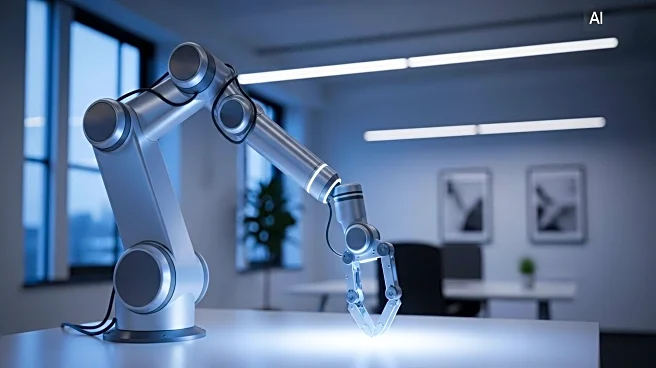What's Happening?
U.S. chief executives are increasingly viewing a shrinking workforce as a status symbol, leveraging artificial intelligence to boost productivity while reducing employee numbers. Amazon's Andy Jassy and Palantir's Alex Karp are among leaders who have announced plans to cut corporate workforce sizes, citing efficiency gains from AI. This trend is supported by political backing from figures like Elon Musk, who has advocated for government efficiency through workforce reductions. Companies are using AI to decouple headcount growth from revenue growth, aiming for higher productivity and operating leverage.
Why It's Important?
The shift towards AI-driven efficiency reflects a broader trend in corporate America where productivity gains are prioritized over job creation. This could lead to significant changes in employment patterns, with potential impacts on the economy and social contract. As AI adoption increases, companies may achieve higher profit margins, but the reduction in human labor demand raises concerns about job security and economic inequality. Investors may benefit from higher revenue per employee, but the long-term societal implications remain uncertain.
Beyond the Headlines
The reliance on AI for productivity raises ethical questions about the future of work and the role of human labor. As companies prioritize efficiency, the balance between technological advancement and workforce stability becomes crucial. The potential for AI to replace human roles entirely could lead to a reevaluation of employment practices and the need for new policies to address workforce displacement.










